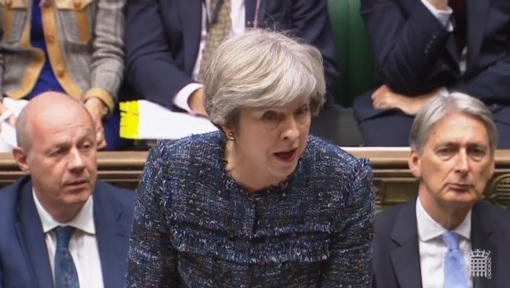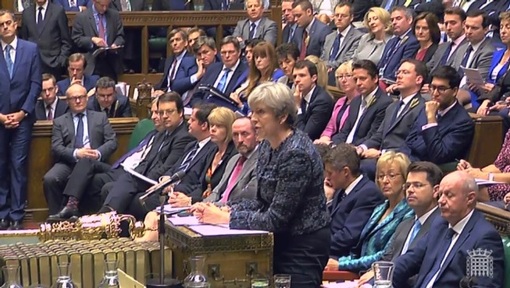PM: 'Not fair' for UN to say Government doesn't help disabled
Prime Minister Theresa May was forced to defend her Government’s disability rights record in Parliament, taking to the dispatch box to reject as ‘not fair’ the UN’s view of disability rights in the UK as a 'human catastrophe'.

Speaking during PMQs, Labour leader Jeremy Corbyn took the opportunity to repeat the words of a report by the UN Committee on disability rights, which had described Britain's approach as a ‘human catastrophe’.
The accusation, on 13 September, brought Mrs May to her feet to say: “Over the time that we have been in Government, we have been seeing more disabled people getting into the workplace.
“We have focused the support we’re giving to disabled people on those who are most in need and we have increased the amount of support that is being given overall to disabled people."
Referring to the Mr Corbyn’s quotes from the UN report she said: “So, again the picture that he presents is not a fair one”.
But as usual, the Labour leader was just warming up. “The United Nations Committee says and I quote: ‘Government policies have caused grave and serious systematic violations in the rights of disabled people’.
“We‘ve seen punitive assessments and sanctions. Cuts to disability benefits. And the bedroom tax that has hit disabled people. 4.2m of whom now live in poverty.”

The Prime Minister hit back: “We spend over £50 billion a year on benefits to support disabled people and people with health conditions and as a share of GDP, our public spending on disability and incapacity is the second highest in the G7.”
The importance of human rights
The UN report also stated that UK Government 'legislation fails to recognise living independently and being included in the community as a human right which enshrines individual autonomy, control and choice, as intrinsic aspects of the right to independent living.'
The Care Quality Commission published the document 'Equally Outstanding' in September on how a focus on equality and human rights helps to improve care.
Paul Corrigan, CQC equality and human rights champion, said: “When finances are squeezed, it may seem tempting to view work on equality and human rights as an expendable extra – when in fact it makes both ethical and business sense for this work to be more central than ever.
"There’s a clear link between the quality of care a service provides and whether the people who use it and its staff feel that their human rights are respected and they are treated equally. And equality and human rights will only become more important over time because of demographic and system change; research shows that money spent on reducing health inequalities is the most efficient way of improving health outcomes for a local population."
To read the CQC document 'Equally Outstanding' visit: http://www.cqc.org.uk/publications/equality-human-rights-good-practice-resource
Latest News
 29-Jul-24
Dementia Bus gives carehome.co.uk staff insight into life with dementia
29-Jul-24
Dementia Bus gives carehome.co.uk staff insight into life with dementia
 27-Jul-23
UK's top home care agencies in 2023 revealed
27-Jul-23
UK's top home care agencies in 2023 revealed
 30-Nov-22
A quarter of older people keep their falls secret from family
30-Nov-22
A quarter of older people keep their falls secret from family
 29-Nov-22
'Covid-19 has not gone away' say terminally ill
29-Nov-22
'Covid-19 has not gone away' say terminally ill
 28-Nov-22
IT consultant who received poor care opens 'compassionate' home care business
28-Nov-22
IT consultant who received poor care opens 'compassionate' home care business